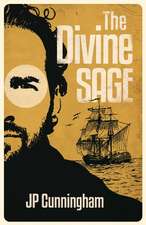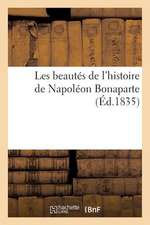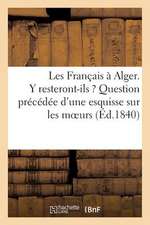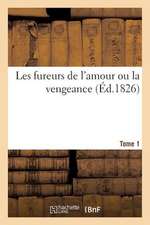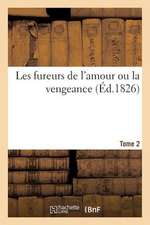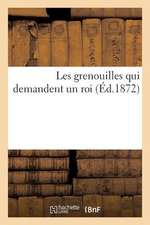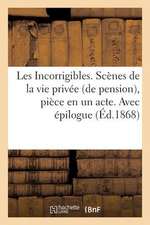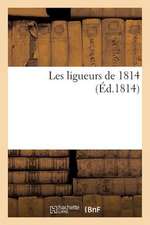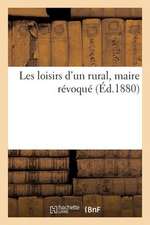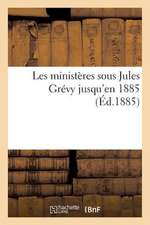Don Quixote
Autor Miguel De Cervantes Saavedra, Miguel De Cervantes Saavedraen Limba Engleză Paperback
Vezi toate premiile Carte premiată
Audies (2004)
| Toate formatele și edițiile | Preț | Express |
|---|---|---|
| Paperback (14) | 45.05 lei 3-5 săpt. | +8.56 lei 10-14 zile |
| Ws Education (Children's) – 24 oct 2022 | 45.05 lei 3-5 săpt. | +8.56 lei 10-14 zile |
| Signet Classics – 31 mar 2011 | 70.08 lei 3-5 săpt. | |
| CreateSpace Independent Publishing Platform – | 118.23 lei 3-5 săpt. | |
| Penguin Books – 31 ian 2003 | 119.20 lei 3-5 săpt. | |
| – | 123.51 lei 3-5 săpt. | |
| CreateSpace Independent Publishing Platform – | 123.55 lei 3-5 săpt. | |
| – | 157.63 lei 3-5 săpt. | |
| Algar libros S.L.U. – sep 2016 | 69.38 lei 17-23 zile | |
| Digireads.com – 31 dec 2008 | 203.93 lei 38-44 zile | |
| CREATESPACE – | 218.74 lei 6-8 săpt. | |
| SMK Books – 23 ian 2012 | 263.35 lei 6-8 săpt. | |
| – | 304.34 lei 38-44 zile | |
| Read & Co. Classics – 26 noi 2016 | 332.31 lei 6-8 săpt. | |
| Simon & Brown – 28 feb 2011 | 368.32 lei 38-44 zile |
Preț: 218.74 lei
Nou
Puncte Express: 328
Preț estimativ în valută:
41.85€ • 43.82$ • 34.63£
41.85€ • 43.82$ • 34.63£
Carte tipărită la comandă
Livrare economică 05-19 aprilie
Preluare comenzi: 021 569.72.76
Specificații
ISBN-13: 9781494430603
ISBN-10: 1494430606
Pagini: 760
Dimensiuni: 152 x 229 x 38 mm
Greutate: 1 kg
Editura: CREATESPACE
ISBN-10: 1494430606
Pagini: 760
Dimensiuni: 152 x 229 x 38 mm
Greutate: 1 kg
Editura: CREATESPACE
Descriere
Descriere de la o altă ediție sau format:
In an acclaimed new translation that is as accessible as it is faithful to Cervantes' original text, here is the epic story of Don Quixote of La Mancha and his squire, Sancho Panza. Revised reissue.
In an acclaimed new translation that is as accessible as it is faithful to Cervantes' original text, here is the epic story of Don Quixote of La Mancha and his squire, Sancho Panza. Revised reissue.
Notă biografică
Miguel De Cervantes Saavedra was born in Spain in 1547 to a family once proud and influential but now fallen on hard times. His father, a poor barber-surgeon, wandered up and down Spain in search of work. Educated as a child by the Jesuits in Seville, the creator of Don Quixote grew up to follow the career of a professional soldier. He was wounded at Lepanto in 1571, captured by the Turks in 1575, imprisoned for five years, and was finally rescued by the Trinitarian friars in 1580. On his return to Spain he found his family more impoverished than ever before. Supporting his mother, two sisters, and an illegitimate daughter, he settled down to a literary career and had hopes of becoming a successful playwright, but just then the youthful Lope de Vega entered triumphantly to transform the Spanish theatre by his genius. Galatea, a pastoral romance, was published in 1585, the year of Cervantes’ marriage to Catalina de Palacios y Salazar Vozmediano. But it did not bring him an escape from poverty, and he was forced to become a roving commissary for the Spanish armada. This venture, which led to bankruptcy and jail, lasted for fifteen years. Although he never knew prosperity, Cervantes did gain a measure of fame during his lifetime, and Don Quixote and Sancho Panza were known all over the world. Part I of Don Quixote was published in 1605; in 1613, his Exemplary Novels appeared, and these picaresque tales of romantic adventure gained immediate popularity. Journey to Parnassas, a satirical review of his fellow Spanish poets, appeared in 1614, and Part II of Don Quixote in 1615 as well as Eight Plays and Eight Interludes. Miguel de Cervantes died on April 23, 1616, the same day as the death of Shakespeare--his English contemporary, his only peer.
Recenzii
"The highest creation of genius has been achieved by Shakespeare and Cervantes, almost alone." —Samuel Taylor Coleridge
"A more profound and powerful work than this is not to be met with...The final and greatest utterance of the human mind." —Fyodor Dostoyevsky
"What a monument is this book! How its creative genius, critical, free, and human, soars above its age!" —Thomas Mann
"Don Quixote looms so wonderfully above the skyline of literature, a gaunt giant on a lean nag, that the book lives and will live through his sheer vitality....The parody has become a paragon." —Vladimir Nabokov
if (contentWritten=="no" &&CoreSetId=="0" &&SYM=="ACD") { contentWritten="yes"; document.write(""A more profound and powerful work than this is not to be met with...The final and greatest utterance of the human mind." —Fyodor Dostoyevsky
"What a monument is this book! How its creative genius, critical, free, and human, soars above its age!" —Thomas Mann
"Don Quixote looms so wonderfully above the skyline of literature, a gaunt giant on a lean nag, that the book lives and will live through his sheer vitality....The parody has become a paragon." —Vladimir Nabokov
"); } else { document.write(""); }
"The highest creation of genius has been achieved by Shakespeare and Cervantes, almost alone." --Samuel Taylor Coleridge"A more profound and powerful work than this is not to be met with...The final and greatest utterance of the human mind." --Fyodor Dostoyevsky"What a monument is this book! How its creative genius, critical, free, and human, soars above its age!" --Thomas Mann"Don Quixote looms so wonderfully above the skyline of literature, a gaunt giant on a lean nag, that the book lives and will live through his sheer vitality....The parody has become a paragon." --Vladimir Nabokov if (contentWritten=="no" && CoreSetId=="0" && SYM=="ACD") { contentWritten="yes"; document.write(""); } else { document.write(""); }
Premii
- Audies Finalist, 2004




